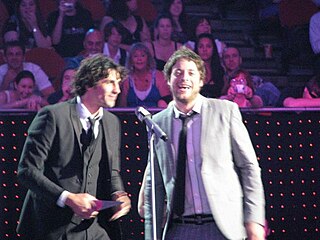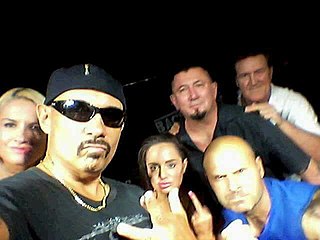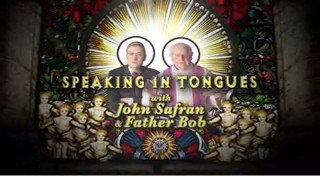The following is the 1971–72 network television schedule for the three major English language commercial broadcast networks in the United States. The schedule covers primetime hours from September 1971 through August 1972. The schedule is followed by a list per network of returning series, new series, and series cancelled after the 1970–71 season. All times are Eastern and Pacific, with certain exceptions, such as Monday Night Football. This season would be the first time the prime time schedule would be shortened to three hours, giving the 7:30 p.m. slot back to local stations, as implemented in the Prime Time Access Rule.
The "Friday night death slot" or "Friday evening death slot" is a perceived graveyard slot in American television. It implies a television program in the United States scheduled on Friday evenings is likely to be canceled.

Television in Australia began experimentally as early as 1929 in Melbourne with radio stations 3DB and 3UZ, and 2UE in Sydney, using the Radiovision system by Gilbert Miles and Donald McDonald, and later from other locations, such as Brisbane in 1934.

John Michael Safran is an Australian radio personality, satirist, documentary maker and author, known for combining humour with religious, political and ethnic issues. First gaining fame appearing in Race Around the World in 1997, Safran went on to produce a series of documentaries, television shows and host radio programs.
In broadcast programming, dayparting is the practice of dividing the broadcast day into several parts, in which a different type of radio programming or television show appropriate for that time period is aired. Television programs are most often geared toward a particular demography, and what the target audience typically engages in at that time.
John Safran's Music Jamboree was a light-hearted Australian music documentary television series, hosted by John Safran for SBS television. The program was produced by Richard Lowenstein, Selin Yaman and Ghost Pictures and directed by Craig Melville, Richard Lowenstein and a number of other directors under the production company Ghost of Your Ex-Boyfriend Productions in association with SBS Independent. It screened in 2002, and consisted of sketches and outlandish public stunts, typical of Safran's work. The series won two Australian Film Institute Awards; "Best Comedy Series" and "Most Innovative Program Concept". SBS followed the series up with the similarly styled John Safran vs God in 2004.

Raymond George Martin AM is an Australian television journalist and entertainment personality. Having won the Gold Logie five times, he is the most awarded star of Australian television, along with Graham Kennedy.

Hamish & Andy are an Australian comedy duo formed in 2003 by Hamish Blake and Andy Lee. Best known for their various drive time radio programmes on the Hit Network, which aired in multiple formats until 2017, their shows gained consistently high market share and became the highest rated radio show in Australian history. Retiring after 14 years of broadcasting, the duo now produce a weekly self-titled podcast and occasionally publish a secondary programme, the Remembering Project, to revisit their old radio segments.

Race Around the World was an Australian travel documentary and competition series produced by the Australian Broadcasting Corporation in 1997 and 1998. The series was brought to the ABC by filmmaker Michael Rubbo, and was based on the Canadian television series Course destination monde (1988–1999).

Must See TV is an American advertising slogan that was used by NBC to brand its primetime blocks during the 1990s, and most often applied to the network's Thursday night lineup, which featured some of its most popular sitcoms and drama series of the period, allowing the network to dominate prime time ratings on Thursday nights in the 1980s and 1990s. Ratings for NBC's lineup fell during the mid-to-late 2000s, and today the network ranks behind Fox, ABC, and CBS on Thursday nights. In 2015, the network canceled comedy programming on Thursdays and switched entirely to dramas. However, the branding returned for the 2017–18 television season.

Paul Fenech is an Australian filmmaker, film and television actor, director, producer and writer. He is best known for writing, directing, producing and starring in the television series Pizza, Swift and Shift Couriers, Housos,Bogan Hunters, Fat Pizza: Back in Business and Housos Vs. Virus: The Lockdown, as well as the motion pictures Fat Pizza (2003), Housos vs. Authority (2012), Fat Pizza vs. Housos (2014) and Dumb Criminals: The Movie (2015).

Speaking in Tongues is an Australian television program broadcast on SBS Television. The first episode was broadcast on 7 November 2005. The series ran for twelve episodes, with the final episode airing on 23 January 2006.

SBS independent (SBSi) operated as the commissioning house for Australia's multicultural public broadcaster, the Special Broadcasting Service (SBS), between August 1994 and December 2007. It was instituted via the landmark "Creative Nation" cultural policy initiative released in October 1994 by the Keating government. The core purpose of the institution was to commission multicultural content from Australian independent film and television producers. At the end of December 2007, SBSi ceased to function as an administratively independent institution, and was merged with the SBS Content and Online Division.

Craig James Melville is an Australian television comedy director. He is best known for his collaborations with comedians John Safran, Lawrence Leung and The Chaser.

SBS is a national public television network in Australia. Launched on 24 October 1980, it is the responsibility of SBS's television division, and is available nationally. In 2018, SBS had a 7.7% audience share.

Top Gear Australia was an Australian motoring reality television series, based on the British BBC series Top Gear. The programme first premiered on SBS One on 29 September 2008. A second season was ordered following the high ratings for the premiere episode and positive comments from advertisers, and the second season began broadcasting from 11 May 2009. After acquiring the rights to broadcast the UK version in 2009, the Nine Network started airing their own version of Top Gear Australia in September 2010. Top Gear Australia returned for a fourth season in 2011. The show was cancelled on 28 April 2012 due to declining ratings.

Food Safari is an Australian television food series presented by Maeve O'Meara and produced by Kismet Productions in association with SBS TV Australia, and explores the cuisines brought to Australia by its immigrants. From seasons 1 to 4, each episode covered a cuisine from a particular culture, including commonly used ingredients and where to obtain them in Australia, the preparation and consumption of 'popular favourites', basic dishes and desserts/sweets. Seasons five to seven, whilst still covering Australian cuisine, focused on the basic elements involved in food preparation, with Food Safari Fire consisting of barbecuing, grilling and smoking of meat and vegetables, Food Safari Earth consisting of vegetarian dishes and focusing on European fermentation and preservation of vegetables, and Food Safari Water which focused on seafood.
SBS Viceland is an Australian free-to-air television channel owned by the Special Broadcasting Service (SBS). It began as SBS TWO on 1 June 2009, and was branded as SBS 2 between 2013 and 2016. On 8 April 2017, SBS Viceland began simulcasting in high definition. On 17 June 2019, the standard definition broadcast was closed and replaced by SBS World Movies, leaving SBS Viceland as a high definition-only channel.












